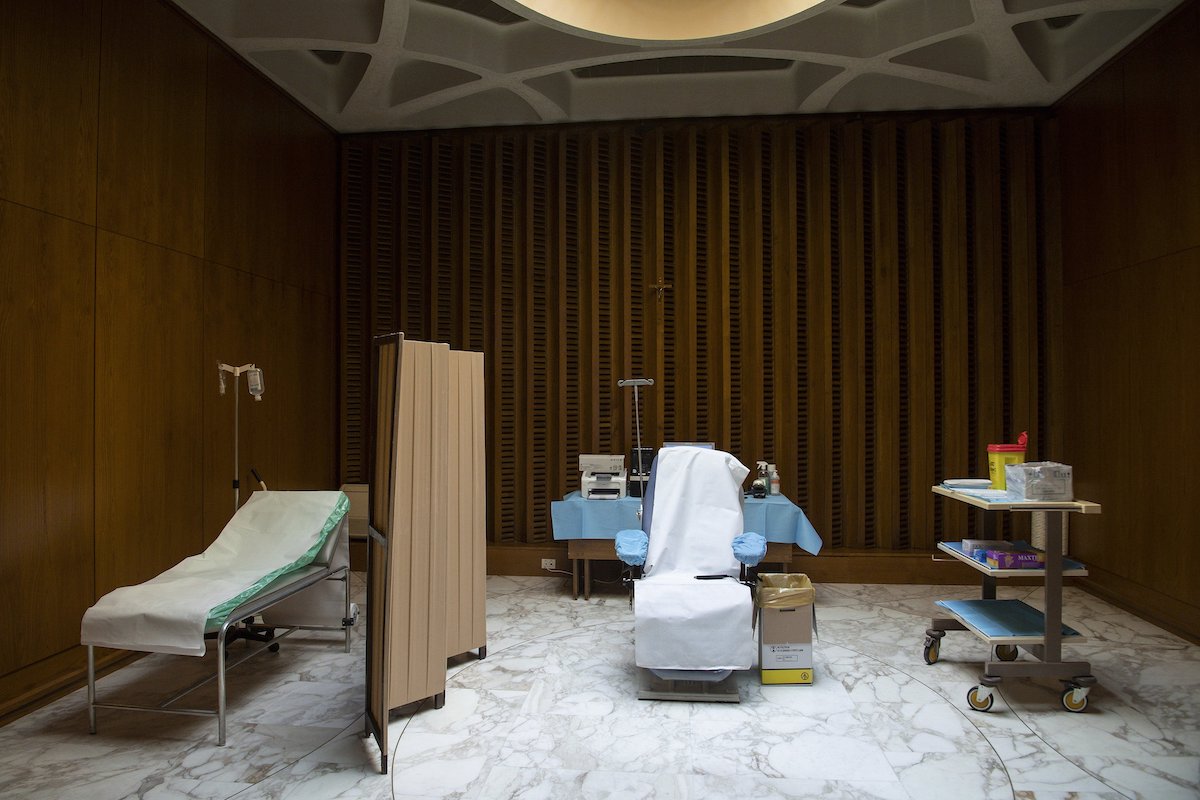

VATICAN CITY — The Vatican began vaccinating its employees and residents against COVID-19 Jan. 13, giving priority to its health care workers, security personnel, employees who deal with the public and older residents, employees and retirees.
Both Pope Francis and retired Pope Benedict XVI said they planned to receive the vaccine, but the Vatican provided no information about the timing of their shots.
The German Catholic news agency KNA reported that the 93-year-old Pope Benedict, who lives in a converted monastery in the Vatican Gardens, wanted to be vaccinated as soon as the vaccine was available in Vatican City State.
The retired pope’s secretary, Archbishop Georg Ganswein, told KNA Jan. 11 that the entire household in the “Mater Ecclesiae” monastery also wanted to be vaccinated.
Pope Francis had said in a television interview broadcast Jan. 10 that he too would be vaccinated against the coronavirus and was already registered.
He said that he believed that from an ethical point of view, everyone should take the vaccine because those who did not would not only put their own lives at risk, but also the lives of others.
In a press release Jan. 2, the Vatican’s health services department said it purchased an “ultra-low temperature refrigerator” for storing the vaccines and said it expected to receive enough doses to cover “the needs of the Holy See and Vatican City State.”
The vaccination program was voluntary. In early December, Dr. Andrea Arcangeli, director of the Vatican health service, said they would begin with the Pfizer vaccine, which was developed in conjunction with BioNTech.
The Vatican reported its first known case of infection in early March, and since then there have been another 25 reported cases — including 11 Swiss guards in October.
Pope Francis’ personal doctor died Jan. 9 of complications caused by COVID-19. Fabrizio Soccorsi, 78, had been admitted to Rome’s Gemelli hospital Dec. 26 because of cancer, according to the Italian Catholic agency SIR, Jan. 9.
However, he died because of “pulmonary complications” caused by COVID-19, the agency said, without providing further details.





